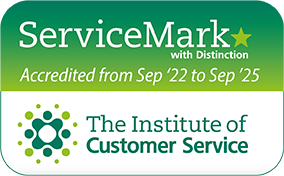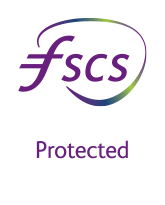Are you a first-time buyer who is confused by the mortgage process? You're not alone! Here are a selection of questions we are commonly asked by first-time buyers.
Let’s start simple! What is a mortgage?
A mortgage is a loan you take out to buy a property. The loan is ‘secured’ against your house until you pay it back, which means that the lender can repossess your home if you do not keep up with the payments.
What is an agreement in principle?
An agreement in principle (sometimes called an AIP, mortgage in principle or decision in principle) is an estimate from a mortgage provider of how much they would be willing to lend you. An agreement in principle gives you a good basis to understand what kind of property you might be able to afford to purchase.
What is Stamp Duty?
In England, Stamp Duty is a tax you pay when buying a property. At present, first time buyers don’t need to pay Stamp Duty on properties up to the value of £300,000. MoneyHelper have a useful Stamp Duty calculator on their website.
How do I choose a solicitor?
A solicitor will handle all the legal elements of your purchase like completing searches, creating contracts and transferring money. The choice of solicitor is yours, but it’s an important one, so make sure you do your research!
Find more information, including the difference between solicitors and conveyancers, here.
What paperwork will I need when I apply for a mortgage?
Applications include everything from proof of address, to your payslips, to your last three months of bank statements. You will also need proof of your deposit.
What does LTV mean?
LTV stands for ‘Loan to Value’ and describes what proportion of your purchase will be made up of a loan from your mortgage provider. For example, if your LTV is 90%, your purchase is made up of a loan from your mortgage provider of 90% and a deposit of 10%.
What different types of mortgages are available to me?
There are lots of different types of mortgages out there, which vary from lender to lender. You can compare mortgage products on comparison sites, but it is worth remembering that these won’t necessarily tell you if a mortgage is suitable for your individual circumstances.
It's also a good idea to familiarise yourself with different interest rate options and how these could affect your monthly payments. Most buyers start off on a fixed term deal (meaning that the interest rate is fixed for a set term), but there are also other interest rates that might work for you such as variable, discounted, and tracker.
Is there any help out there for First Time Buyers?
There are a variety of schemes that you might be eligible for, such as Shared Ownership, which you can read about on the Government's Own Your Home website. For information on the affordable housing schemes that Newbury Building Society supports, click here.
What is a guarantor?
A guarantor is someone, usually a parent or guardian, who will cover your mortgage payments if you are unable to pay them.
What happens if I’m a self-employed?
If you’re employed by a company, it is easy to prove your income by providing your lender with payslips. However, if you’re self-employed, things can be slightly trickier.
The two main ways of proving your income are by supplying business accounts or tax returns. If you’re supplying business accounts, you’ll usually need to supply at least three years’ worth, and most lenders will require them to be signed off by a Chartered or Certified Accountant.
What other costs are involved in getting a mortgage?
Getting a mortgage is an expensive adventure! Aside from moving costs and your deposit, there other costs you’ll need to foot the bill for. These include application fees, booking or reservation fees, and valuation fees. You can find out more about each of these in our guide for first time buyers.
Other things you’ll want to set some money aside for include solicitors fees, stamp duty (if applicable), survey costs, and buildings insurance.
My deposit is a gift, is this OK?
Yes, however, you must be able to prove that your deposit has been given to you without the expectation of repayment (else this would be classed as a loan). Your lender may require you to fill in and sign a gifted deposit letter or declaration as proof. You can find out more about gifted deposits on the Homeowners Alliance website.
At Newbury Building Society, we pride ourselves on providing a tailored service to fit your unique circumstances. If you're a first time buyer and you'd like to discuss your options with a qualified mortgage adviser, visit our online appointment booking page.
YOUR MORTGAGE IS SECURED ON YOUR HOME. THINK CAREFULLY BEFORE SECURING OTHER DEBTS AGAINST YOUR HOME. YOUR HOME MAY BE REPOSSESSED IF YOU DO NOT KEEP UP REPAYMENTS ON YOUR MORTGAGE.




